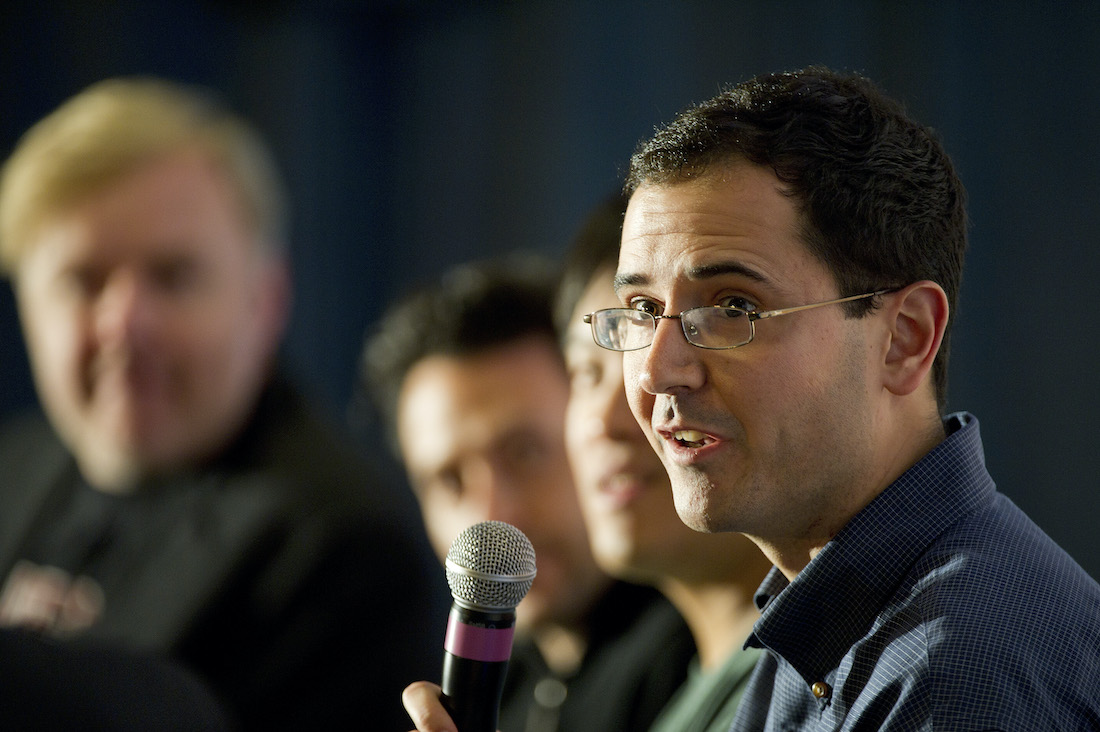
For Newfund Capital partner Henri Deshays, passion and commitment to solve a specific problem is the cornerstone of a potential early-stage investment. Deshays, who also co-founded Stanford’s StartX accelerator program and ModeWalk, fashion and ecommerce site acquired in 2014, explains why ‘founder-market fit’ is critical to raising seed capital, and what early-stage investors need to see from your startup.
If you look at the webpage of Newfund Capital, a venture capital firm focused on early-stage startups, its portfolio companies don’t have much in common at first glance.
Newfund’s investments span four continents and many sectors, from fintech and retail to hardware and blockchain. But its portfolio companies have one key ingredient in common, according to Newfund partner Henri Deshays: passionate founders and teams with the ability to execute.
Deshays calls it the “founder-market fit,” and that serves as the basis for Newfund’s investment philosophy.
“It’s very focused on passion, commitment, team dynamics, capacity to execute, and knowledge that the expected value of a startup is negative,” he says. “But despite this, founders were compelled because of a vision, unique insight into a market, and are passionate about solving a problem. Once we have some degree of conviction on that, we will then look at the product and the market to define whether or not there is a venture opportunity.”
“Your company will most likely have to pivot down the road, and that’s the moment of truth. Without this irrational passion, the rational route will be to take the safe road and go work at Facebook.” - @hdeshays Share on XPrior to joining Newfund, Deshays himself was an entrepreneur who founded ModeWalk, a fashion and ecommerce startup that was acquired by Moda Operandi in 2014. He also led strategy at StartX, Stanford University’s accelerator program, which he co-founded while studying at the School of Business.
If you are in for the long term, the next steps are ensuring you have the correct resources to succeed, a team that can execute from 0 to 1, a clear pain point to solve, and a large market potential if this pain point is solved. The rest is tactics.
Register for Deshays’ Founders Network pitch practice here, or find out if you qualify for full Founders Network membership to get insights and feedback on:
- Articulating the problem you’re solving
- Defining the solution you’re building
- Explaining why you need funding, and what you’ll do with it
- Conveying passion and a unique point of view
- Showing your team’s ability to execute and pivot
“Personal traits like drive, determination and insight aren’t always easy to quantify. But they’re an important predictor of success — or at minimum, a founder’s capacity to steer a startup through changes and challenges,” says Deshay. Those skills are incredibly valuable to both the startup and its investor base.
“When I make an investment, I’m wrong 80% of the time,” Deshays explains. ““Your company will most likely have to pivot down the road, and that’s the moment of truth. Without this irrational passion, the rational route will be to take the safe road and go work at Facebook.”
“Investment is an accelerant, but not a solution. You have to believe that with that accelerant, the team will iterate faster, find product-market fit, and be able to grow quickly.” - @hdeshays Share on XFor founders seeking seed or pre-seed funding, coming into the process with a crystal-clear point of view on what you’re building, why you’re building it, and the reason you need investment will help get your message across.
“Investment is an accelerant, but not a solution,” Deshays adds. “You have to believe that with that accelerant, the team will indeed iterate faster, find product-market fit, and be able to grow fairly quickly.”
Venture capital also isn’t necessarily for everyone. It’s a costly form of investment, marked by a high level of risk and low rate of return. Moreover, venture capital also comes with certain conditions and growth expectations that may or may not align with every founder’s goals.
“A level of maturity on what milestones they expect to achieve in raising venture money, and why venture money is best for their startup, is fairly important.” - @hdeshays Share on XStill, founders in the process of raising seed money must be clear-eyed about their purpose, and be able to clearly articulate the problem or pain point they’re solving, how they’ll solve it, and what milestones they expect to achieve if they’re successful in raising capital.
“A level of maturity on what milestones they expect to achieve in raising venture money, and why venture money is best for their startup, is fairly important,” Deshays adds.
Startup founders with strong “founder-market fit” may have an easier time selling investors on their ideas, and persuading them that they’re the right person for the job. That doesn’t guarantee you’ll get funded — venture capitalists run rigorous due diligence on each investment, analyzing the market potential of each idea — but having a strong point of view can go a long way.
“What is the solution that the founders are working on, and why are they the right team to go after that solution? Once we have that picture, then we can go on to the interesting part,” Deshays says.






